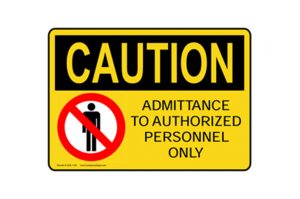
 A natural step in the recruitment process is for employers to verify your employment history and job performance in previous roles before making you a formal offer of employment. Nothing new here.
A natural step in the recruitment process is for employers to verify your employment history and job performance in previous roles before making you a formal offer of employment. Nothing new here.
However, there are things that you should strongly consider before casually handing over your referee details.
Talking to an executive this week about his current job search, I learnt about his staggering experience with sharing his referees with a local Recruiter before meeting with the client/employer. Typically at an executive level, reference checks are not completed until much later in the process, when the candidate and client have met and decided they are both keen to progress the recruitment process. In this instance the candidate completed full psychometric testing and reference checking prior to any formal interview or meeting.
Presumably because the candidate had his referees listed on his resume, the Recruiter proceeded to speak to them without seeking permission first.
The first the candidate knew about it was when one of the referees called and told him that not only had he been drilled about his job performance and working relationship, but then the Recruiter had proceeded to canvas the referee for the job in question. So much so, the referee was then invited in for interview for the same job! The candidate was clearly gob smacked. He had potentially just done himself out of a job by providing competition for the opportunity, albeit unintentionally. He was absolutely floored that this could happen and questioned the integrity of the Recruiter.
Some of you may argue – so what? What is wrong with that? The referee might be a better match for the job in question and the Recruiter needs to act in the best interest of their client. I would argue that there is due process, common decency and respectful communication in question here.
With this example in mind, I recommend that all executive candidates do not include a referee list on their resume, unless of course it is explicitly requested as part of the process and you have informed your referees of the role you are being considered for. If you progress past first round interview and there is genuine interest where both you and the employer feel there is a match, then, and only then, should you discuss your referees.
Referees are busy and a thorough reference check will take at least 20 – 30 minutes to get a detailed understanding of not only roles and responsibilities, but KPI’s, outcomes, job performance, areas of strength, development areas, leadership style and communication skills. A hectic executive is not going to appreciate being called every few weeks by another potential employer or recruiter to have the same conversation. The risk also is that it potentially reflects badly on you, as your referee might be feeling ‘over it’ and thinking ‘not another reference’ and if these feelings are coming out in their tone, it could overshadow their true assessment and reflection of your job performance in the past. It is better that your referee is only interrupted and called for a role that you are very close to securing and will accept if offered. Don’t waste their time or yours for roles you aren’t 100% serious about or when you are in the early stages of a process and unsure of how close you are to winning the job.
Other quick tips:
1. Always ring your referee before they are contacted and ensure they are still happy to act as a referee for you. Quickly explain your current situation and the type of role you are going for – this will help give them some context before receiving a call and it also helps frame their reference to match the type of role you are going for.
2. Tell the referee who will be calling. You could always text the person’s phone number for them to save in their phone, so that when the number comes up, they know who it is. It’s all about taking responsibility and making it as easy as possible for all parties involved.
3. Find out the best number to reach them on and when is the best time to call and communicate this back to the person who will be ringing.
4. Make reference checking easy for your recruiter – text or email the exact referee details including current employer, exact title, best numbers to call on, email and even a link to their LinkedIn profile. The more prepared everyone is for these conversations, the more meaningful the exchange and information obtained – all of which helps your case and increases your chances of being offered the role.
There are certainly many examples out there relating to where reference checking can go wrong for different parties involved. Even last week, after I conducted a glowing reference check for my candidate, she rang to say “Hey, I heard you spoke to Chris (the referee), he didn’t realise I was on the job market and offered me a job with his new employer”. Now, lucky for me, she didn’t take it and won the role with my client – but it is a clear reminder that as a candidate on the job market, you need to take responsibility and be on the front foot when it comes to providing referees and having conversations upfront, where you set expectations and create the most favorable set of circumstances for all involved.
